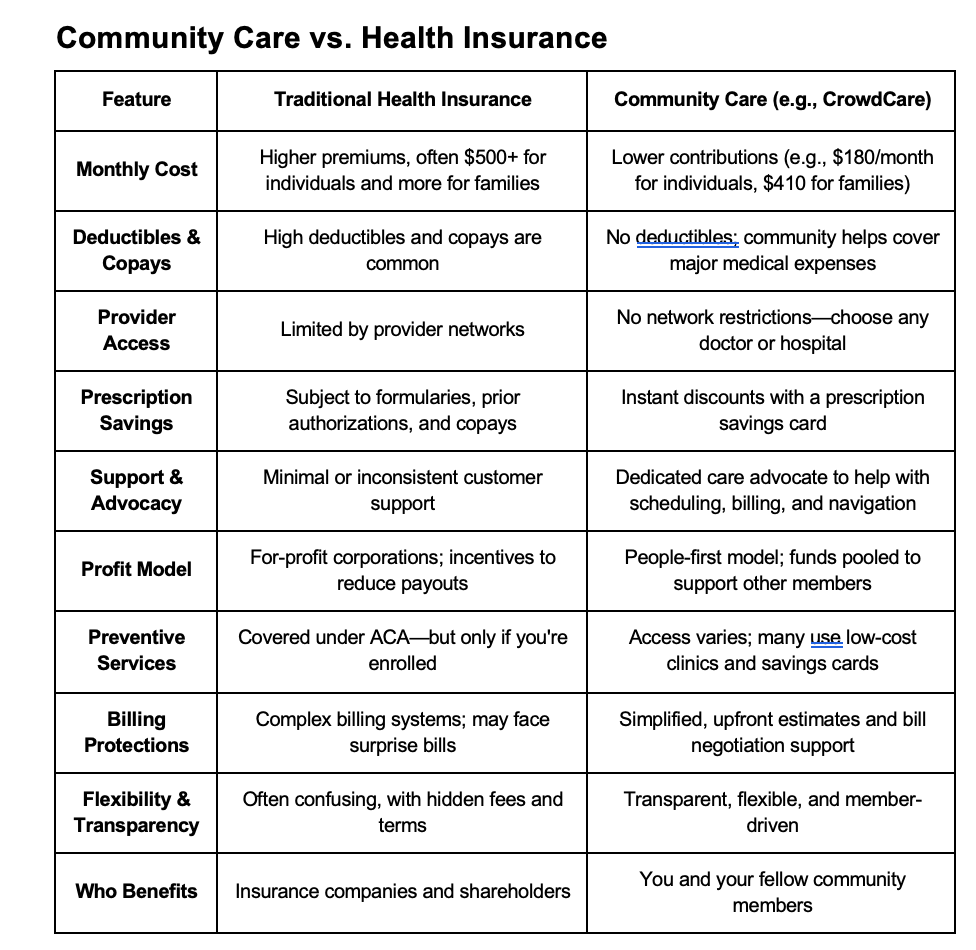
What Happens If You Don’t Have Health Insurance in the US?
Don't have health insurance in the US? See
what happens if you don't have it and encounter a medical emergency here.
By Sam Barcley
In a country where medical costs rank the highest in the world, being uninsured in the US is a huge financial burden.
However, despite this, it’s the reality for many. Twenty-seven million Americans of all ages are uninsured.
If you’re one of these people, it can be extremely worrisome. That’s why it’s important to know what happens if you don’t have health insurance.
If I Have No Health Insurance, What Happens?
You Pay High Out-of-Pocket Medical Costs
Without insurance, you’re billed for everything. Every test, doctor visit, or procedure, everything.
According to KFF, uninsured patients will pay around 40% of these costs out-of-pocket. Therefore, it can quickly run into the thousands.
For example, on the HealthCare website, they mention a broken leg can cost up to $7,500, a 3-day hospital visit, $30,000, and cancer care, into the hundreds of thousands.
You Have Limited Access to Care
Generally speaking, if you’re uninsured, you’re less likely to get regular checkups, preventive services, or prescriptions because of cost.
As a result, you have limited care, which, now, might be okay, but in the future, it could turn minor problems into emergencies.
You’re Not Protected in Medical Emergencies
In a medical emergency in the US, emergency rooms must treat you. It’s the law. However, you may have to pay a full, undiscounted fee.
These unexpected bills can be catastrophic as well. As mentioned earlier, a 3-day hospital visit could be $30,000, and that doesn’t consider the time you might need off work.
You Miss Out on Subsidized Programs
Depending on your coverage, you can get free preventive services, no- or low-cost healthcare, or premium tax credits that lower costs. In other words, being uninsured means you don’t have access to programs designed to make healthcare affordable.
You Could Face Tax Penalties in Some States
California, Massachusetts, New Jersey, Rhode Island, and the District of Columbia impose penalties on those who are uninsured. For example, in California, the penalty in 2025 is $900 per uninsured adult and $450 per
uninsured child.
You Don’t Get Free Preventive Services
Health insurance doesn’t only cover large bills. It covers routine care. Something that most health plans cover because of the Affordable Care Act. This means you’ll get shots, screens, checkups, and counseling at no extra cost to you.
Without having these services, small issues could turn into lifelong issues. And, in some cases, hefty bills if you’re uninsured and
require extensive care or surgery.
Is Health Insurance the Only Way to Stay Healthy?
No, but this doesn’t mean you don’t need support. You need it. It’s just that health insurance isn’t the only way to stay healthy.
The most important thing is having access to care when you need it. Whether urgent or non-urgent. That's why community care is becoming a popular alternative.
We at CrowdCare follow a community care model. This is a low-cost alternative to health insurance, where the community pays a small monthly fee to crowd fund each other's medical bills.
Therefore, instead of helping insurers profit from their plans, you help someone else, and when you need it, they help you.
Why Community Care is the New Health Insurance
Traditional healthcare insurance is broken. Americans deserve a simpler, more transparent, and more human alternative. And that’s exactly what community care is.
It Replaces Profit-Driven Models with People-First Funding
As you and I know, traditional insurers are profit-driven. Their profits mean more than the people they serve. It’s as simple as that.
When looking at a community care model, though, like CrowdCare, it’s driven by people, a community.
Therefore, instead of your money feeding an insurer's profit, it goes to helping other people with their healthcare issues.
Your Care Isn’t Limited by a Network
Under community care organizations like CrowdCare, there are no network restrictions.
Those enrolled can choose any doctor and any hospital they like. You’re not bound by narrow “in-network” providers like with HMO plans.
This can benefit US citizens in many ways. One way is that they actually get the care they need from the specialist they require. The second is that they don’t face high out-of-network costs, like you would with
other healthcare plans.
It Makes Prescriptions Affordable Without a Fight
With CrowdCare, after signing up, members will get a prescription-saving card. This grants them instant access to discounts on
brand-name and generic drugs.
We also actively negotiate for better pricing, often getting members the same discount as large insurers. It’s also much simpler, as you just need to swipe your discount card at the pharmacy, not hassle with the insurer.
Every Member Has an Advocate
The healthcare system can be confusing. It’s not like everybody is trained on it. However, when required, you need someone who knows about it in your corner.
At Crowdcare, all of our members get access to a care advocate. These are individuals who help you navigate the healthcare system.
Essentially, if you have a membership with us, the advocate will work for you. They’ll help find fairly priced, high-quality providers, negotiate bills, and answer any questions about the journey.
You simply don’t get this service at traditional insurance companies. There are too many hurdles to clear and not enough health expertise.
It Costs Less and Covers More of What Matters
Compared to traditional coverage, community care organizations like ours are much more affordable.
For example, at CrowdCare, an individual under 55 will pay $180 per month, and a family of four won’t set you back more than $410 per month.
This alone can save you thousands of dollars each year. And, even better, without limiting your healthcare freedom.
FAQ
What is the cheapest way to get healthcare without insurance?
You can either visit a community health clinic, use a telehealth service, apply for Medicaid (if possible), or join a community care program like CrowdCare.
Is it illegal not to have health insurance?
At a federal level, no, it’s not illegal. This federal mandate ended in 2019. However, some states still require it at the state
level, including California, New Jersey, Massachusetts, Rhode Island, and
Washington, DC.
What happens if I have no health insurance?
You may be responsible for the full cost of your medical services. Uninsured individuals are also less likely to receive regular care, which can worsen their health conditions.
What’s the difference between health insurance and community care?
The main differences are their individual goals. The goal of a health insurance company is to make a profit, whereas community care is designed to crowd fund others' medical expenses.
Can I join CrowdCare if I have pre-existing conditions?
Yes, however, pre-existing conditions are not eligible for crowdfunding for the first two years of membership.
Conclusion
In the US, being uninsured means you’re exposing yourself and loved ones to high medical bills and limited care.
Those who don’t have health insurance often struggle to pay the healthcare bill. In fact, 62% of people in this situation end up with medical debt.
However, it doesn’t have to end up this way. Community Care is here, and it puts people first instead of profit.
Our company at CrowdCare follows this approach. For a tiny monthly fee, we pool resources and help protect your health and finances as a community. To learn more about how we can help, contact us today.
